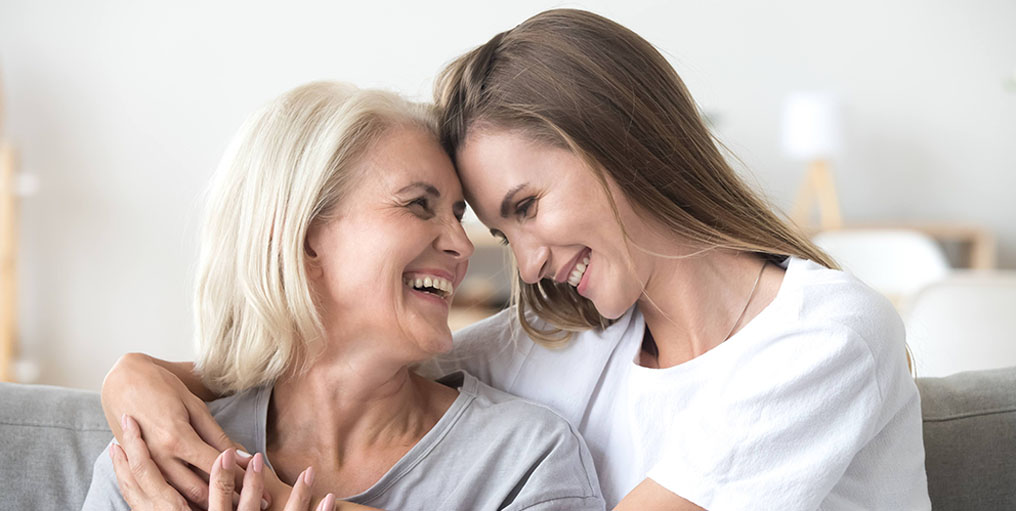Care Giving Can Become An Entire Loving Family Affair

Listen to Article
Share this Article: [social-share align=”left” style=”icon” size=”m” nospace=”no” animation=”no” counters=”0″ buttons=”facebook,twitter,mail,messenger”]
Written By Tony Subia
August 2022
Family Support For Pancreatic Cancer Patients
Giving quality care to a pancreatic cancer patient that is recovering from treatment can become an exhausting journey with many twists and turns for just one person. Therefore, care giving should be a shared family responsibility that could even extend to good friends of the patient. Coalescing as a team can reroute that journey into a much smother ride.
When you become a caregiver it is an ultimate commitment as a gift of love. Each member of the family caregiver team undoubtedly has other demanding obligations that limits availability due to job requirements and are heads of young families with young children that need timely attention. Others may have health issues themselves that limits availability while other family members live out of the area. Giving care to is not absent of challenges.
In spite of anxiety-provoking that can test emotions and patience, care giving can be a rewarding family-bonding experience. Performing compassionate patient care to those we love will become a comprised collective of cherished moments. It will strengthen extended family unity for having cared for a loving patient through a comforting successful recovery.
The Importance of Designating A Primary Caregiver
When forming a “Family Care Giving Team”, there must be a “designated primary caregiver”which usually should be the family member with the most available time and the most physically and emotionally conditioned to handle the difficult functions right after the patient has been told of the overwhelming odds they face going forward.
The most demanding times would be right after the patient is released from the hospital after withstanding a very complex surgery or having experienced the most demanding chemotherapy and radiation treatments. At this time the patient will need emotional optimism and inspired to vision nothing short of a successful recovery.
How A Primary Caregiver Can Approach Other Family Members
It is important to note that the primary caregiver cannot show resentment or anger if a potential caregiver declines to help. Any negative reactions can split family member into factions. It is so important to the healing of the patient for them to be shielded from any family conflicts. Any friction among could make the patient feel guilty for even asking for help and could very well hinder his or her emotional and physical recovery.
When asking for help, the primary caregiver can emphasize how they, as a loved-one can find personal satisfaction in joining the care team. It is a meaningful role that not only demonstrates the love they have the patient and how it will enrich the life of the co-caregiver. It is important to suggest assignment to co-caregivers based upon that person’s available time and being capable of handling specific assignments.
Many roles can involve younger caregivers such as teen boys being responsible for some occasional yard maintenance or teen girls to help with some housecleaning and laundry requirements. Having grandchildren spending quality time just having enjoyable conversation with patients. Others may provide grocery shopping and even cooking meals. Any contribution to the care giving effort is of value.
Others could volunteer taking the patient to chemotherapy sessions that would give welcomed time off by the primary caregiver to catch some “breathers” and time to perform their own family requirements. Others could volunteer picking up prescriptions. The number of helpful things caregivers could provide are almost endless will to take some pressure off the primary caregiver.
Important Roles The Primary Family Caregiver Should Consider
There must be a primary caregiver that delegates the roles and responsibilities of the caregiver team to avoid chaos and friction. Individual caregiver roles should consider other co-caregiver obligations such as employment, their health limitations, young families with younger children to take care for. In most cases smaller roles, yet very important roles can be decided upon.
The primary caregiver should assume the responsibility of attending doctor checkups, so he or she can ask pertinent questions such as frequency of required medications so they can be accurately dispensed at the proper prescriptions, doses, and required frequency. The primary care giver should keep a journal detailing the medical team’s care instructions including care taking of possible treatment of surgical wounds.
Asking about dietary needs, best food types to consume. How to supervise proper levels of physical activity. And if necessary, define proper ways to turn the patient over while limited to bed recovery. The primary caregiver must make sure that any visitors that visit the patient are in ideal health without any illness that could be transmitted. The primary caregiver should keep the other caregivers informed of patient progress.
Primary Caregiver Summary of Roles and Responsibilities
- Attend all medical checkups with the patient’s doctors and/or the patient’s medical team
- Keep a detailed journal of medical instructions and prescription schedules.
- Know the patient’s dietary needs and frequency of meals and preferred snacks.
- Supervise permissible physical activity of the patient at any given time during recovery.
- Make sure any patient visitors are not carrying a contagious illness.
- Keep the patient calm. Avoid conversation that could become agitating.
- Keep the family care giving team content and informed.
- As the primary, you need reasonable time off to re-energize. Request that support.
- Physical needs of bathing, dressing, and needed companionship to the patient.
- Be able to delegate dates of care giving within the confines of individual abilities.
- Arrange schedules, manage medical insurance issues, support with financial matters.
- Encourage co-caregivers to bring any negative issues to you for immediate solution.
- Give the patient the best possible care focused on his or her quality of life.
- Ask for help but push co-care providers to take necessary breaks to “recharge”.
- Attend to any reasonable requests by the patient.
Summary of Co-Family Caregivers' Roles and Responsibilities
Care giving to a family member will become a richly rewarding experience to each participating co-family caregiver. It is a special opportunity to love, share, and bond together as a member of the family caregiver team.
-
- How richly rewarding and meaningful it will mean to each caregiver.
- A special opportunity to love, share, and bond together as a family caregiver team.
- Give the patient the best possible care focused on his or her quality of life.
- A care giver is a better care giver when they also care to their own needs as well.
- No offer of help is inconsequential. All offer of help will be appreciated.
- Always greet the patient with smiles and impressions that exude confidence.
- Upbeat, positive feelings of the patient are important to his or her recovery.








